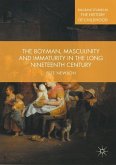This book is open access under a CC BY 4.0 license.
This open access book explores how children, parents, and survivors reshaped the politics of child protection in late twentieth-century England. Activism by these groups, often manifested in small voluntary organisations, drew upon and constructed an expertise grounded in experience and emotion that supported, challenged, and subverted medical, social work, legal, and political authority. New forms of experiential and emotional expertise were manifested in politics - through consultation, voting, and lobbying - but also in the reshaping of everyday life, and in new partnerships formed between voluntary spokespeople and media. While becoming subjects of, and agents in, child protection politics over the late twentieth century, children, parents, and survivors also faced barriers to enacting change, and the book traces how long-standing structural hierarchies, particularly around gender andage, mediated and inhibited therealisation of experiential and emotional expertise.
This open access book explores how children, parents, and survivors reshaped the politics of child protection in late twentieth-century England. Activism by these groups, often manifested in small voluntary organisations, drew upon and constructed an expertise grounded in experience and emotion that supported, challenged, and subverted medical, social work, legal, and political authority. New forms of experiential and emotional expertise were manifested in politics - through consultation, voting, and lobbying - but also in the reshaping of everyday life, and in new partnerships formed between voluntary spokespeople and media. While becoming subjects of, and agents in, child protection politics over the late twentieth century, children, parents, and survivors also faced barriers to enacting change, and the book traces how long-standing structural hierarchies, particularly around gender andage, mediated and inhibited therealisation of experiential and emotional expertise.
"This is an interesting and suggestive book, useful for historians of activism, childhood, emotion, welfare, media as well as contributing to historical accounts of privacy and confessional culture. Successfully mapping such a large and diverse sector is especially impressive given the eclectic and idiosyncratic nature of the field and ethical issues surrounding archival records on historical abuse." (Chris Moores, Journal of Contemporary History, Vol. 56 (2), 2021)








